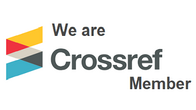Exploring the use of MIM in online flipped BIPA classrooms in South Korea: a pragmatic review
Abstract
This study examines to what extent a mobile instant messenger (MIM) is effective in online flipped BIPA (Indonesian as a Foreign Language) classrooms in enhancing learners’ pragmatic competence. The proposed approach is applied to an undergraduate introductory course on Indonesian language in South Korea. Learners are exposed to the lecture contents prior to the lecture time and the MIM is used for group discussion during the online sessions. Questionnaire distribution and participatory observation are used as techniques to collect the data and the results reveal that this approach helps them understand the course concepts better and helps them involved in an interactive and collaborative learning environment. Learners also produce sentences proper for the situation and perform appropriate speech acts to their peers.
Keywords
Full Text:
PDFReferences
Bardovi-Harlig, K. (2013). Developing L2 Pragmatics. Language Learning, 63(1), 68-86, https://doi.org/10.1111/j.1467-9922.2012.00738.x
Bergmann, J. and Sams, A. (2012). Flip Your Classroom. Oregon: International Society for Technology in Education
Cavus, N and Ibrahim, D. (2009). M-learning: an experiment in using SMS to support learning new English language words. British Journal of Educational Technology, 40 (1), pp. 78-91,
https://doi.org/10.1111/j.1467-8535.2007.00801.x
de Bakker, G., Sloep, P., & Jochems, W. (2007). Students and instant messaging: a survey of current
use and demands for higher education. Association for Learning Technology, 15(2), 143–153,
http://doi.org/10.1080/09687760701470973
Han, J. and Cho, O. (2015). Platform Business Eco-Model Evolution: Case Study on KakaoTalk in Korea. Journal of Open Innovation: Technology, Market, and Complexity, 1(6), pp. 1-14, https://doi.org/10.1186/s40852-015-0006-8
Hao, Y. (2016). Exploring undergraduates' perspectives and flipped learning readiness in their flipped classrooms. Computers in Human Behavior, 59, 82-92, https://www.sciencedirect.com/science/article/abs/pii/S0747563216300401
Holmes, J. (1986). Functions of you know in women's and men's speech. Language in Society, 15(1), 1-21. http://doi.org/10.1017/S0047404500011623
Hou, H. and Wu, S. (2011). Analyzing the social knowledge construction behavioral patterns of an online synchronous collaborative discussion instructional activity using an instant messaging tool: A case study. Computers & Education, 57(2), pp. 1459-1468, https://doi.org/10.1016/j.compedu.2011.02.012
Jeong, W. (2007) Instant messaging in on-site and online classes in higher education. Educause Quarterly, vol. 1, pp. 30-36, https://er.educause.edu/-/media/files/articles/2007/2/eqm0714.pdf?la=en&hash=0AF00805649BF4E3CA5A99D3883D33E742C697A2
Jiang, X. (2006). Suggestions: What should ESL students know? System, 34, 36–54, https://www.sciencedirect.com/science/article/abs/pii/S0346251X05000941
Koh, Y. H. (2018). The Implementation of Flipped Learning Method in Indonesian Language Classroom in Tertiary Level in South Korea. Journal of Asian Studies, 27(3) 211-238, http://dx.doi.org/10.2991/assehr.k.200331.182
Lauricella, S. and Kay, R. (2013). Exploring the Use of Text and Instant Messaging in Higher Education
Classrooms. Research in Learning Technology, 21(3), pp. 1-17, https://doi.org/10.3402/rlt.v21i0.19061
Lee, G. and Wallace, A. (2017). Flipped Learning in the English as a Foreign Language Classroom:
Outcomes and Perceptions. Tesol Quarterly, 52(1), pp. 62-84, http://doi.org/10.1002/tesq.372
Levy, M., & Kennedy, C. (2005). Learning Italian via mobile SMS. In Kukulska-Hulme, A. & Traxler, J. (Eds.). Mobile Learning: A Handbook for Educators and Trainers. (pp. 76-83). London: Taylor and Francis
Littlewood, W. (2011). Communicative language teaching: an expanding concept for a changing world. In E. Hinkel (Ed.). Handbook of research in second language teaching and learning. Volume II (pp. 541–557). New York: Routledge
Manes, J. and Wolfson, N. (1981). The compliment formula. In F. Coulmas (ed.). Conversational Routine. Volume 2 (pp. 115- 132). The Hague: De Gruyter Mouton
Rahardi, K. (2005). Pragmatik: Kesantunan Imperatif Bahasa Indonesia. Jakarta: Erlangga
So, S. (2016). Mobile instant messaging support for teaching and learning in higher education. The Internet and Higher Education, 31, pp. 32-42, https://doi.org/10.1016/j.iheduc.2016.06.001
Stone, B., B. (2012). Flip your classroom to increase active learning and student engagement. Paper
presented at the 28th Annual Conference on Distance Teaching and Learning, Madison, WI. http://www.uwex.edu/disted/conference/Resource_ library/proceedings/56511_2012.pdf
Strayer, J. (2012). How learning in an inverted classroom influences cooperation, innovation and task orientation. Learning Environments Research, 15(2), pp. 171-193, https://doi.org/ 10.1007/s10984-012-9108-4
Ur, P. (1999). A Course in Language Teaching. Cambridge: Cambridge University Press
Yang, T. and Hew, K.F. (2017). Is mobile instant messaging (MIM) useful in education? Examining its technological, pedagogical, and social affordances. Educational Research Review, 21, 85-104, https://doi.org/10.1016/j.edurev.2017.05.001
Zhang, H., Song, W., Burston, J. (2011). Reexamining the Effectiveness of Vocabulary Learning via Mobile Phones. Turkish Online Journal of Educational Technology, 10(3), pp. 203-214, https://www.researchgate.net/publication/259442040_Reexamining_the_effectiveness_of_vocabulary_learning_via_mobile_phones
DOI: https://doi.org/10.26499/jbipa.v5i2.6322
Refbacks
- There are currently no refbacks.
Publisher:
Badan Pengembangan dan Pembinaan Bahasa, Kementerian Pendidikan dan Kebudayaan Republik Indonesia
Address: Jl. Daksinapati Barat 4 No.11, RT.11/RW.14, Rawamangun, Kec. Pulo Gadung, Kota Jakarta Timur, Daerah Khusus Ibukota Jakarta 13220 Phone: +62 (021) 4896558

Jurnal Bahasa Indonesia bagi Penutur Asing (JBIPA) is licensed under a Creative Commons Attribution-NonCommercial 4.0 International License.
View My Stats -->





